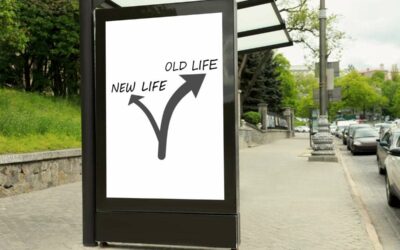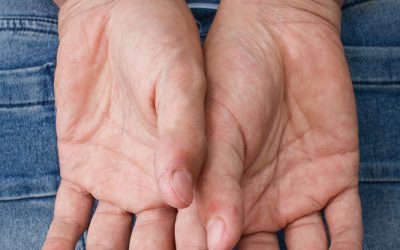Lithium as a drug of abuse PMC
Contents
If the toxicity is severe, lithium may need to be removed from the body. In acute toxicity, people have primarily gastrointestinal symptoms such as vomiting and diarrhea, which may result in volume depletion. During acute toxicity, lithium distributes later into the central nervous system resulting in mild neurological symptoms, such as dizziness. The rate of hypothyroidism is around six times higher in people who take lithium. Low thyroid hormone levels in turn increase the likelihood of developing depression. People taking lithium thus should routinely be assessed for hypothyroidism and treated with synthetic thyroxine if necessary.
How does lithium change your personality?
Substantial affect and mood changes are induced by lithium carbonate. Lethargy, dysphoria, a loss of interest in interacting with others and the environment, and a state of increased mental confusion were reported.
Using microarray and rt-QPCR assays, we identified candidate genes that are differentially expressed with lithium treatment. We used a systems biology approach to identify interactions among these candidate genes and develop a network how alcohol affects heart failure of genes that interact with the differentially expressed candidates. Notably, we also identified cocaine as having a potential influence on the network, consistent with the observed high rate of comorbidity for BD and cocaine abuse.
What Is Lithium?
Safety concerns arise when batteries are abused, used outside the design’s operational space, poorly designed, or beyond useful life. Heat generation and gas generation are the most common responses of batteries to abusive conditions–the most serious consequences occur when the stored energy is rapidly released in an unintended manner, triggering thermal runaway. This report presents the fundamentals of battery safety and abuse tolerance. It discusses materials, cells, and battery system design, manufacturing, applications, and validation, as well as the lessons learned from recent failures.
Is 1800 mg of lithium too much?
The right dosage of lithium varies from person to person, but most people are prescribed between 900 milligrams (mg) to 1,200 mg per day, in divided doses. Some people take more than 1,200 mg per day, especially during acute episodes. Others may be more sensitive to lower doses.
If you’re experiencing any of these symptoms or side effects, you should seek immediate medical attention. Lithium poisoning can be life-threatening and should be monitored and treated promptly. Lithium toxicity mostly affects your kidneys and central nervous system. In more severe cases, you may experience neurological or cardiovascular problems. As the toxicity worsens, you may feel delirious or even have seizures or go into a coma.
Adverse effects
Cocaine represses NR4A2 expression [54–57] as well as DAT expression . Notably, the keyword “forebrain” characterizing the interaction between FOS and FOSB is also consistent with cocaine abuse. Zahm, et al., showed that FOS expression in basal forebrain was “recalibrated” with cocaine use . Lithium was first used in the 19th century as a treatment for gout after scientists discovered that, at least in the laboratory, lithium could dissolve uric acid crystals isolated from the kidneys. The levels of lithium needed to dissolve urate in the body, however, were toxic. As accumulating knowledge indicated a role for excess sodium intake in hypertension and heart disease, lithium salts were prescribed to patients for use as a replacement for dietary table salt .

Lithium bromide and lithium chloride have been used in the past as table salt; however, they fell out of use in the 1940s, when it was discovered they were toxic in those large doses. Many other lithium salts and compounds exist, such as lithium fluoride and lithium iodide, but they are presumed to be as toxic or more so than the chloride and have never been evaluated for pharmacological effects. There are a few old studies indicating efficacy of lithium for acute depression with lithium having the same efficacy as tricyclic antidepressants.
The substance can also be toxic if one takes too much at one time, and that amount can change due to circumstances. But that doesn’t mean they need a lithium detox in the way that one who is addicted to heroin needs a heroin detox or someone with alcohol use disorder needs an alcohol detox. Since there is no such thing as lithium addiction, neither are there lithium addiction symptoms. No drug works the same way for everyone, and lithium is no different. It can be ineffective or have negative side effects that outweigh its benefits. Successful Withdrawal from Abilify Prior to becoming a resident at ATMC, I had been on the highest recommended dose of Abilify, as well…
The resulting network represents a novel hypothesis on how multiple genetic influences on bipolar disorder are impacted by both lithium treatment and cocaine use. In addition, it models related pharmacogenomic, psychiatric, and chemical dependence phenotypes. We started building the network looking for direct interactions among the differentially expressed genes, but the resulting network did not include all of the genes. 10 beverage dos and don’ts for diabetes We expanded the network to include one node between the differentially expressed genes, and the resulting network connects the 12 genes. We then added lithium and cocaine, as well as the nodes required to link them to the network. The resulting network includes the 12 genes differentially expressed with lithium treatment, the genes most closely interacting with them, and the nodes required to include lithium and cocaine .
Several studies have shown that lithium is effective in treating bipolar disorder compared to other medications. It is usually prescribed to treat bipolar disorder and can even be used to treat depression when some of the traditional antidepressants aren’t effective. Many feel that lithium is a useful but underutilized drug, at least in the United States. Below are some of the most frequently asked questions about lithium carbonate, lithium orotate, other mood-stabilizing prescription drugs, Lithium Carbonate drug interactions, and other topics. No published clinical studies were found relating to withdrawal from natural lithium or lithium orotate.
Drug Interactions
Also, the number of doses you take each day, the time allowed between doses, and the length of time you take the medicine depend on the medical problem for which you are using the medicine. The dose for each is different and they are used at different times of the day. Do not change the type of medicine you take without talking to your doctor first. Talk to your doctor about the correct amount of fluid to take with this medicine. Do not take more or less of it, do not take it more or less often, and do not take it for a longer time than your doctor ordered. The specific biochemical mechanism of lithium action in stabilizing mood is unknown.
The NO system could be involved in the antidepressant effect of lithium in the Porsolt forced swimming test in mice. Typically produces no obvious psychotropic effects in normal individuals at therapeutic concentrations.Lithium may also increase the release of serotonin by neurons in the brain. Lithium co-treatment is also a risk factor for neuroleptic malignant syndrome in people on antipsychotics and other antidopaminergic medications. Lithium is primarily cleared from the body through glomerular filtration, but some is then reabsorbed together with sodium through the proximal tubule.
Related to Bipolar Disorder
However, elderly patients are more likely to have age-related heart, kidney, or liver problems, which may require caution and an adjustment in the dose for patients receiving lithium. Your doctor should monitor you closely to ensure you’re taking the right levels of lithium. Since lithium toxicity can happen through your body’s excretion, you might not know initially whether you have high levels in your body. By noticing the early signs of lithium toxicity, you can get the help you need. Contact your doctor or psychiatrist if you feel like you’re experiencing any side effects from your medication. You can also have them check your lithium levels to find out if they’re too high.
Another possible mechanism is that ACE inhibitors can lead to a decrease in sodium and water. This will increase lithium reabsorption and its concentrations in the body. Because lithium competes with the antidiuretic hormone in the kidney, it increases water output into the urine, a condition called nephrogenic diabetes insipidus.
Lithium is used to treat mania that is part of bipolar disorder (manic-depressive illness). It is also used on a daily basis to reduce the frequency and severity of manic episodes. Manic-depressive patients experience severe mood changes, ranging from an excited or manic state (eg, unusual anger or irritability or a false sense of well-being) to depression or sadness. Published accounts of abuse testing of lithium-ion cells and components are summarized, including modeling work.
Do not drive or do anything else that could be dangerous until you know how this medicine affects you. Call your doctor right away if you have blurred or double vision, dizziness, eye pain, severe headache, or nausea and vomiting. Ask your healthcare professional how you should dispose of any medicine you do not use. If you miss a dose of this medicine, take it as soon as possible.

Even taken as directed, there can be side effects that may require adjustments, but it seems to have none of the side effects of benzodiazepines . Additionally, the article has been reviewed by the professional listed in the “reviewed by” in the header area. This Alternative to Meds Center article has been medically reviewed and fact-checked for accuracy.
Along with its needed effects, a medicine may cause some unwanted effects. Although not all of these side effects may occur, if they do occur they may need medical attention. Do not go on a diet to lose weight and do not make a major change in your diet without first checking with your doctor. Improper dieting could cause the loss of too much water and salt from your body and could lead to serious side effects from this medicine. Use extra care in hot weather and during activities that cause you to sweat heavily, such as hot baths, saunas, or exercising.
Discontinuing/Quitting Lithium — How do You Wean Off Lithium?
Its levels are therefore sensitive to water and electrolyte balance. Diuretics act by lowering water and sodium levels; this causes more reabsorption of lithium in the proximal tubules so that the removal of lithium from the body is less, leading to increased blood levels alcohol addiction & abuse of lithium. ACE inhibitors have also been shown in a retrospective case-control study to increase lithium concentrations. This is likely due to constriction of the afferent arteriole of the glomerulus, resulting in decreased glomerular filtration rate and clearance.
From this summary, a set of exothermic reactions is selected with corresponding estimates of heats of reaction. Using this set of reactions, along with estimated kinetic parameters and designs for high-rate batteries, models for the abuse behavior (oven, short-circuit, overcharge, nail, crush) are developed. Finally, the models are used to determine that fluorinated binder plays a relatively unimportant role in thermal runaway. Lithium treatment has been found to inhibit the enzyme inositol monophosphatase, involved in degrading inositol monophosphate to inositol required in PIP2 synthesis. This leads to lower levels of inositol triphosphate, created by decomposition of PIP2. This effect has been suggested to be further enhanced with an inositol triphosphate reuptake inhibitor.
- RCM and HC conceived the study and drafted the manuscript, with significant input from JDC and MGM.
- The material is not a substitute for qualified medical diagnoses, treatment, or advice.
- In order for lithium to work properly, it must be taken every day in regularly spaced doses as ordered by your doctor.
Children 7 years of age and older weighing 20 kg to 30 kg—600 mg to 1200 mg or 10 mL to 20 mL given in divided doses per day. Children 7 years of age and older weighing 20 kg to 30 kg—600 mg to 1500 mg or 10 mL to 25 mL given in divided doses per day. The amount of medicine that you take depends on the strength of the medicine.